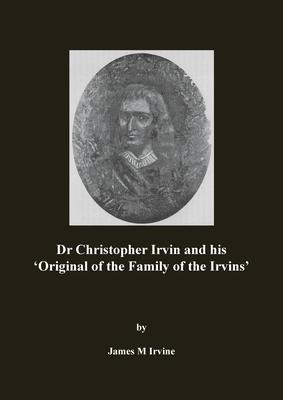Part I of this book is a biography of a controversial Scotsman of the 17th century. Descended from a prominent family of reivers on the Scottish Borders, he eventually succeeded to an estate in Co.Fermanagh. He survived the Irish massacres of 1641, imprisonment by the Covenanters, Cromwell's war against the Scots, and the Glorious Revolution of 1688. He studied on the continent, graduated from Edinburgh University, worked as a schoolmaster, served as a military surgeon, and practised a Doctor. He was an author of several books, one of which remained in print until the 19th century, and was appointed by King James VII as his Historiographer Royal and personal Physician in Scotland. His private life was unorthodox, leading to his being described as "an adulterer, a bigamist, a trigamist, a poisoner and a murderer", and the lawsuits over his estate have been cited in 21st century jurisprudence.
Part II addresses an account written by Dr Irvin on the origins of his family and its surname. This account is the basis of many of the popular traditions associated with the surname, but his full text is relatively unknown. It transpires that several versions and copies of his account have survived, some with colourful embellishments. The provenance of these versions is explored and their texts reproduced, the oldest surviving version now being published for the first time. The veracity of its many claims are assessed, not least that the Scottish kings from 1034 to 1286 were Irvins, that Robert the Bruce was sheltered by an Irving of Bonshaw, and that all the Irvine/gs of Bonshaw, Drum and Orkney share a common ancestor.
This book is the result of three decades of painstaking research. It draws primarily on contemporary sources, but also draws on DNA test results to assess traditional relationships. It is a fascinating case-study of the interfaces between Scottish genealogy and history, and will be a seminal contribution to future studies of the Irwin surname.
